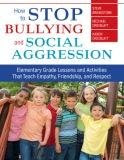Educators and administrators often ask us about case law regarding
cyber bullying to help guide them in policy and procedure. As far as I know, and I research it daily, case law is limited. One law suit, now in progress, is slowly developing (read article:
Evidence of Megan Meier's death will be permitted in Lori Drew's cyber-bullying trial)
Regardless of case law, school personnel need to respond if a student harasses or bullies another student(s) using the school computer/
internet system. A school also needs to be involved even if the
cyber bullying was initiated off campus, but interrupts learning on campus. This is referred to as an off-campus/on-campus nexus.
A real challenge for administrators and teachers is when one student bullies another student online, but there is no connection to school computer use or an on-campus/off-campus nexus. They struggle when confronted by a parent of a student who is being bullied by another student at the school. Simply put, a distressed parent does not want to hear “The bully
didn’t use a school computer, there is no nexus and therefore there is nothing we can do or required to do.”
In such situations, we do have some recommendations. First, we believe all schools should be preemptive and should teach all students, staff and parents about the different types of bullying, how to address it as a target, bystander, or parent, and consequences of bullying. This won’t stop all bullying from occurring, but can limit its affects.
Also, when necessary, and as appropriate, share the following information, which I have cut and paste from a document titled
Educator’s Guide to Cyberbullying and Cyberthreats by Nancy Willard, M.S., J.D. Note that this is not legal advice, but information to consider.
Civil Litigation
When should parents of a target consider civil litigation against the bully and parents of the
bully?
Civil laws provide the ability for cyberbully victims to sue the bully and the bully’s parents to recover financial damages for injuries or require actions, such as removal of material and discontinuation of cyberbullying. Some cyberbullying activities meet the standards for what is called an intentional “tort” (wrongdoing).
In many jurisdictions, there are parental liability laws that allow someone who is intentionally injured by a minor to hold the parents of that minor financially responsible. Parents can also be found negligent in failing to provide reasonable supervision of their child. If a school official notifies parents that their child is cyberbullying another and the cyberbullying continues, this can provide an enhanced ability to hold the parent’s financially liable. Informing the parents of the cyberbully about this potential is likely the strongest “motivation” school officials can use to ensure that the cyberbullying stops.
Depending on the facts, the following legal actions might be possible:
• Defamation. Someone publishes a false statement about a person that damages his or her reputation.
• Invasion of privacy/public disclosure of a private fact. Someone publicly discloses a
private fact about a person under conditions that would be highly offensive to a reasonable person.
• Invasion of personal privacy/false light. Publicly disclosing information that places an individual in a false light.
• Intentional infliction of emotional distress. Someone’s intentional actions are outrageous and intolerable and have caused extreme distress.
An attorney can send a letter to the bully’s parents and seek informal resolution or file a lawsuit.
Criminal Law
When should a school contact, or assist a parent in contacting, law enforcement officials?
Extremely harmful online speech can violate criminal laws. The following kinds of speech can lead to arrest and prosecution:
• Making threats of violence to people or their property.
• Engaging in coercion (trying to force someone to do something he or she doesn’t want to do).
• Making obscene or harassing telephone calls (this includes text messaging).
• Harassment or stalking.
• Hate or bias crimes.
• Creating or sending sexually explicit images of teens (this is child pornography).
• Sexual exploitation.
• Taking a photo of someone in place where privacy is expected (like a locker room)At
Balance Educational Services, we teach students, staff and parents how to avoid on-going bullying, and hope that a situation never gets so severe that law enforcement has to be involved. However, educating people that bullying or harassing someone online may lead to legal liability can be a good deterrent to a bully and/or motivate the parents of a
cyberbully to provide more supervision.
If anyone is familiar with case law regarding
cyberbullying, please let us know.
Thanks.
Steve


